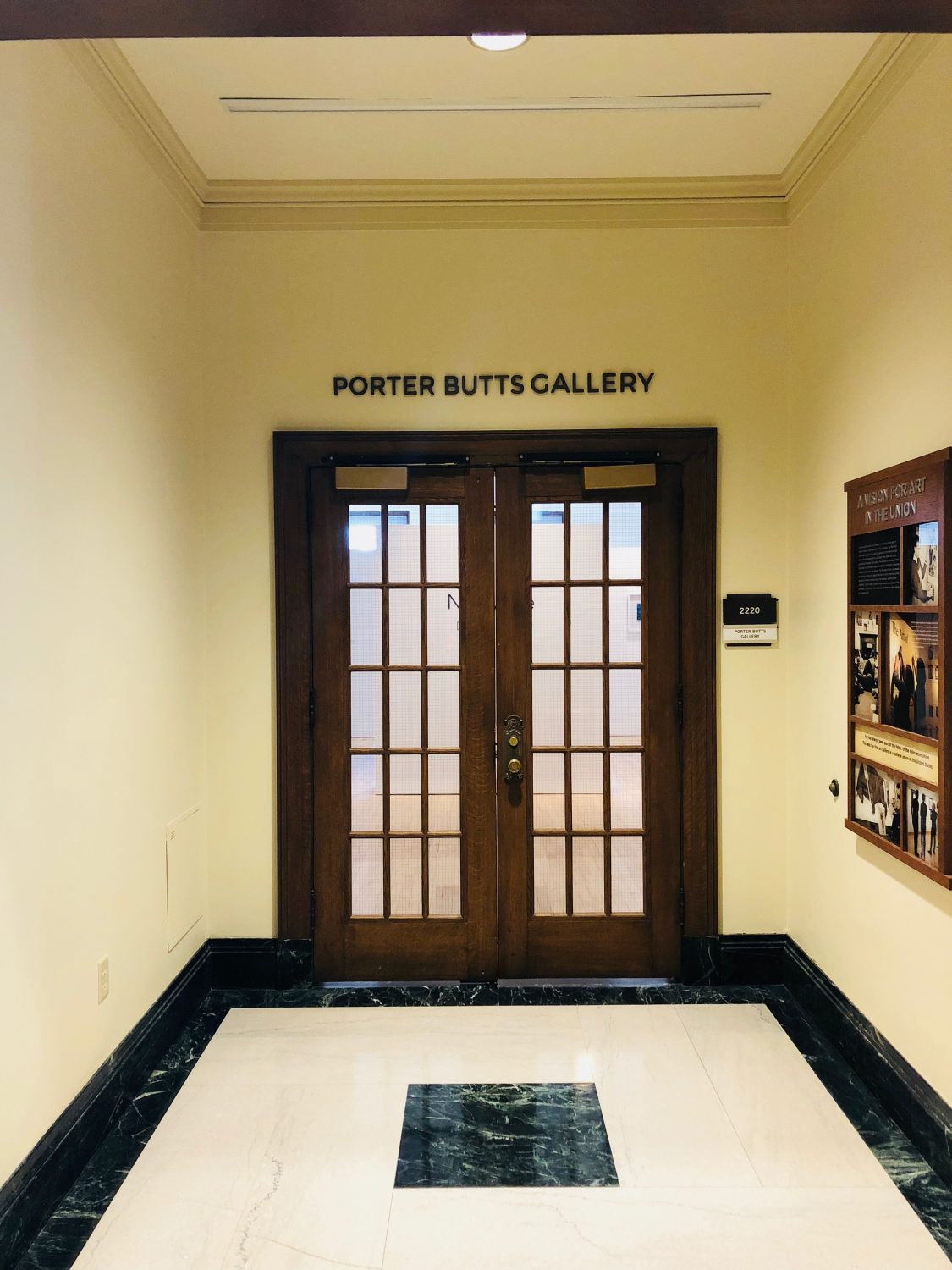
Two rooms at the Wisconsin Union named for members of a campus Ku Klux Klan group will be changed before the school year begins, if a Union Council resolution passed Monday is approved by University of Wisconsin Chancellor Rebecca Blank. Blank has indicated support for the resolution and is expected to approve the change.
Amendments to the proposed resolution for Memorial Union’s Porter Butts Gallery and Fredric March Play Circle, named after alumni who were members of a 1920s campus organization called “Ku Klux Klan,” were approved at Monday’s Union Council meeting.
The resolution calls for the name of Wisconsin Union founder Porter Butts be relocated to a non-programming location, and actor March’s name be removed entirely, before the 2018-19 academic year begins. It also outlines ways to “honor the entirety of Butts’ contribution to UW-Madison,” which could include adding an interactive kiosk, installing a temporary Butts biographical piece and providing education on the history of both the campus and national Ku Klux Klan. The resolution further calls for the gallery to be called the Main Gallery and the theater to simply be called the Play Circle.
In an email to Madison365 Tuesday morning, UW spokesperson Meredith McGlone wrote, “Chancellor Blank has indicated she is supportive of the direction Union Council has taken and it is expected that she’ll approve their recommendation.”
The amendments come nearly one month after some students and community members expressed concern over the names of the spaces during open forums hosted by the Council. The resolution says it aims to respond to this concern and also take into account “the entirety of Butts’ and March’s lives.”
“The spirit of the resolution was to see if we could find a way to honor the perspective of students in the community about the issue, while also finding a way to properly recognize the professional legacy of Porter and Frederic,” said Mark Guthier, the Union Council director and secretary.
The resolution prompts the university to relocate Butts’ name to another permanent non-programming location within Memorial Union. In collaboration with Butts family members, it also suggests establishing a team to create an interactive kiosk which will outline “Butts’ contributions, philosophy and impact” by the end of the upcoming academic year.
To further promote inclusion on campus, the Union Council also recommended that the university identify more resources on the value of diversity and continue research on the two alumni, as well as acknowledge any other additional information about Butts that has been discovered.
Representatives in the Council, including those who are students, said the resolution seems like an appropriate step forward in the process.
“I think it is a solution that is really acknowledging of all the voices that were involved in this issue and acknowledges the complexity of the issue itself,” said Wisconsin Union Directorate representative Fernanda Martinez. “As a student, I feel very comfortable about where this is going.”
Though both Butts and March were part of the Ku Klux Klan interfraternity society, it is unclear whether the group was affiliated with the national Knights of the Ku Klux Klan during its time on campus.
Because there is little evidence to support that Butts was part of the national organization, a common theme of the meeting was finding balance in respecting students’ discomfort with the names of the spaces, while still honoring his contributions to the university.
Liz Preston, alumni representative of the Council, expressed the importance of developing a resolution that represents both voices and isn’t influenced or divided by the media.
“It’s such a great opportunity for us to not let the media push us to make a decision,” she said. “We’re creating our own choice, we’re creating our own way forward. It’s a hybrid of difference.”
The Council also said they plan to reach out to more students about future steps, including the students who filed a hate and bias report regarding the rooms.
Council President Mills Botham emphasized that the resolution is not meant to denounce Butts and March, but to acknowledge their contributions, as well as the actions of theirs that may be perceived as “questionable.”
“This is not a condemnation of either of these men,” he said. “This is a willingness to recognize the voices of those who have stepped up and said that they’re not comfortable with the space. What we can do moving forward is to more accurately and more fully tell their stories.”
This story has been updated to reflect Chancellor Rebecca Blank’s opinion and intention to approve the resolution.



